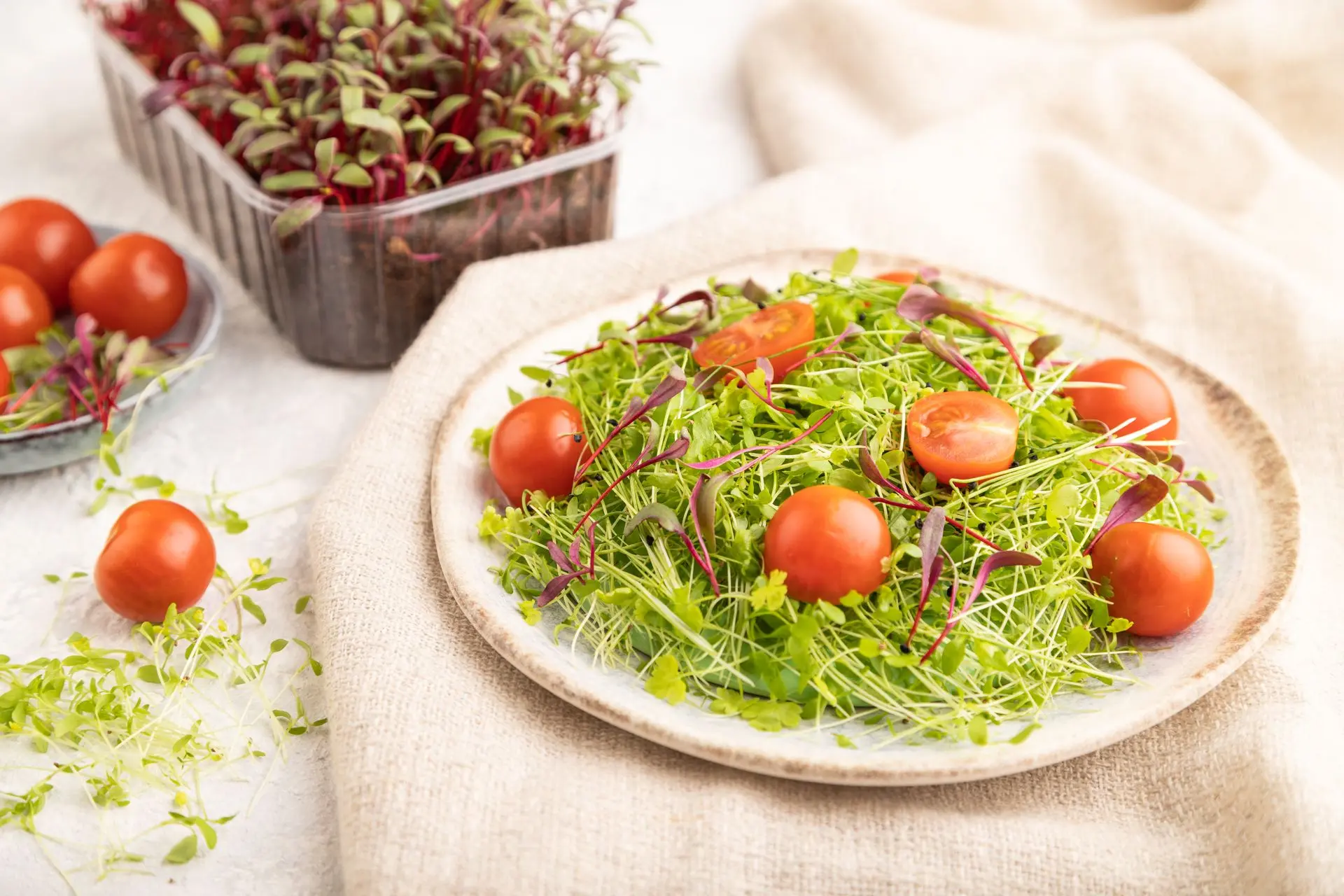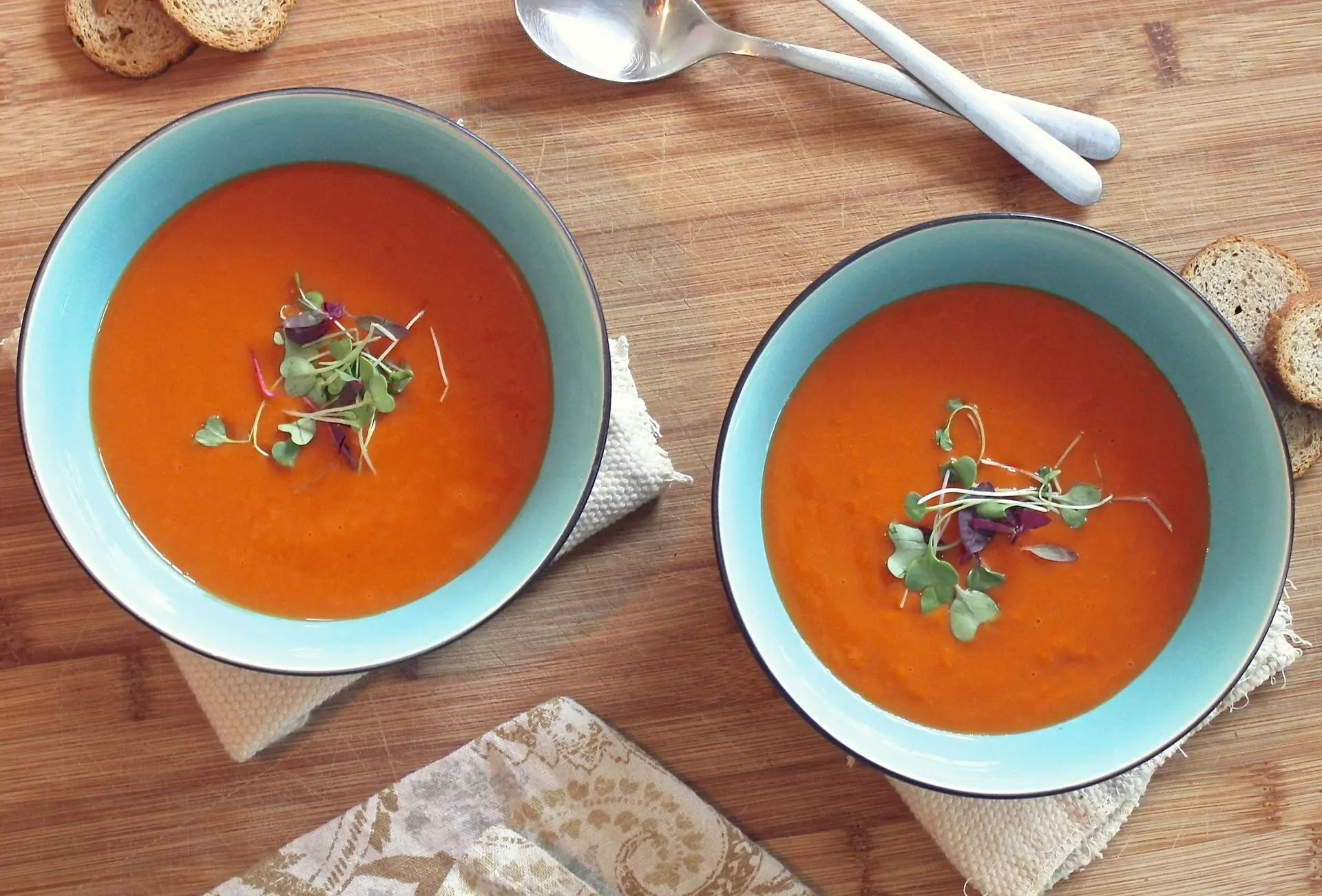WHAT ARE MICROGREENS?
Microgreens are young, edible plants that are harvested shortly after germination, when the first true leaves appear. These small vegetables are rich in nutrients and often contain higher concentrations of vitamins, minerals, and antioxidants than their mature counterparts. They are harvested at their most favourfull and nutritious moment, making them a powerful addition to both professional and home kitchens.

A POWERFUL NUTRITION BOOST!
Microgreens are young, edible plants packed with flavour and nutrients. They elevate your dish to a higher level and give your body a significant boost.
Check out these three scientifically* proven advantages!


Garnish
A refined and colourful finishing touch.

Flavour enhancer
Give your dishes a little bit extra.

Salad base
Light and nutritious alternative to traditional lettuce.
HOW DO YOU USE MICROGREENS?

Topping
Delicious on rolls, bowls, soups, sushi, pasta, meat- and fish dishes.
Inspiring recipes with microgreens
Whether you're a chef or just love good food, here are a few tasty ideas.

Luxury salad with rocket microgreens
Fresh combination with strawberry, radish and tomato

Sushi with radish microgreens
Spicy, crunchy finishing touch.

Tuna, pickled cucumber and pea microgreens
And a crispy topping of fried onions and salad mix.
*SCIENTIFIC RESEARCH
Discover scientific research and resources here about the power of microgreens!
No rights can be derived from this, see also our general terms and conditions
by Shashank Sharma, Priyanka Dhingra and Sameer Koranne
"Microgreens are young, edible plants with high concentrations of nutrients and antioxidants. They contain more vitamins and minerals than their mature counterparts and can contribute to better health, including boosting immunity and potentially preventing neurodegenerative diseases. Due to their flavour and versatility, they are popular in culinary applications."
by Keerthana P G and Subaratinam R
"Microgreens are young, edible plants with high concentrations of vitamins, minerals, and antioxidants. They contain more nutrients than mature vegetables and can help strengthen the immune system. Research suggests that they contribute to the prevention of diseases such as cardiovascular diseases, diabetes, obesity, and neurodegenerative conditions like Alzheimer's and Parkinson's."
Source: A Short Literature on Microgreens: Understanding their nature and Current Research
by Mahinder Partap, Diksha Sharma, Deekshith, Meenakshi Thakur, Vipasha Verma, Ujala &
Bhavya Bhargava
Microgreens are young, edible plants that are harvested when the first true leaves appear. They are rich in nutrients such as vitamins A, C, E, and K, minerals like iron, potassium, zinc, magnesium, and copper, and antioxidants. Research has shown that microgreens contain higher concentrations of these nutrients than their mature counterparts.
Due to their high levels of bioactive compounds, microgreens can contribute to combating malnutrition and improving immunity. They may play a role in the prevention and treatment of neurodegenerative conditions such as Alzheimer's disease and Parkinson's disease.
by Cleveland Clinic
Microgreens are young, edible plants that are harvested a few days after germination, when the first true leaves appear. These small vegetables are rich in nutrients and often contain higher concentrations of vitamins, minerals, and antioxidants than their mature counterparts. Research suggests that microgreens can help regulate blood sugar levels, which is beneficial for people with type 2 diabetes. Additionally, the polyphenols in microgreens may improve cognitive functions and reduce the risk of neurodegenerative diseases, such as Alzheimer's disease. Furthermore, certain microgreens can help lower LDL cholesterol and triglycerides, contributing to better heart health. Some varieties contain sulforaphane, a compound that may help prevent cancer. Incorporating microgreens into your diet is a simple way to enhance the nutritional value of meals and benefit from these health advantages.
Source: Why You Should Eat Microgreens